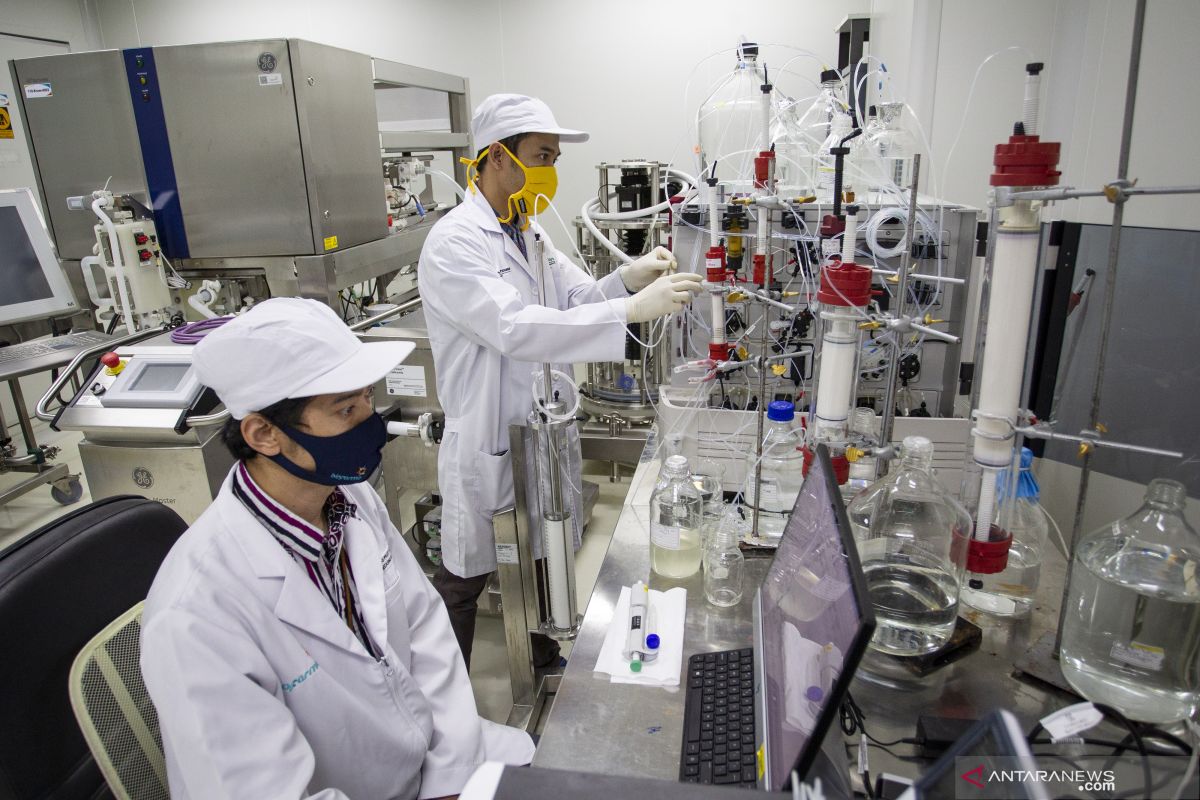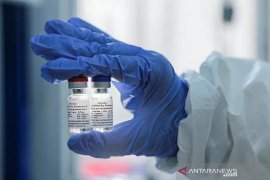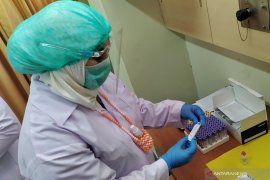If all goes well, Eijkman plans to start conducting preclinical trials of the vaccine candidate on animals in November this year.
“Currently, it (vaccine development) is about 55 percent on the laboratory scale. It is hoped that the preclinical test or animal testing will soon be carried out next month (November, 2020) -- if everything goes well — so that it will be finished at the end of the year, and early in the year of 2021, it can be submitted to Bio Farma," head of the Eijkman Institute for Molecular Biology, Amin Soebandrio, said in Jakarta on Wednesday.
Amin expects Eijkman to hand over the Red and White vaccine seeds to PT Bio Farma in early 2021. PT Bio Farma will formulate the vaccine seeds so that they can be prepared for clinical trials in humans.
Eijkman has developed the vaccine using a recombinant protein sub-unit platform. The antibodies produced after the vaccine is administered will work to prevent the virus from attaching to human cells and the release of viral genetic material into human cells, it said.
Eijkman has used the strain of SARS-CoV-2 virus that causes COVID-19 circulating in Indonesia as the basis for genetic information for the development of the Red and White vaccine.
The institute said it has been successful in amplifying the gene encoding proteins S and N from the SARS-CoV-2 virus strain found in Indonesia. It said it has also carried out the transfer of S and N genes from carrier vectors to expression vectors of mammalian cell lines.
Currently, the lab is waiting for the mammalian cells to produce antigens in the form of the expected recombinant protein.
In this case, antigens are substances that can stimulate the immune system to produce antibodies against the SARS-CoV-2 virus, Eijkman said.
Eijkman said it has chosen to develop the vaccine using a recombinant protein subunit platform because it is relatively safer in that it does not use live viruses as vectors.
Production costs of developing vaccines with recombinant protein subunit platforms are also relatively low, and the technology has been mastered by many countries, including developing countries such as Indonesia.
“So even though the technology is not ancient technology, it is a newer technology that has been mastered by many countries and the results are relatively easy to harvest and relatively safer because it does not use live viruses as vectors,” Amin said.
Amin said that a recombinant protein-based vaccine that targets the receptor-binding domain (RBD) of the SARS-CoV-2 virus is considered more potent because it can generate immunity, but on the other hand, there is also concern that antibody enhancement through the vaccine is minimal, or even, does not exist.
Related news: Bio Farma projected COVID-19 vaccine "Merah Putih" roll-out by 2022
Related news: COVID-19 immunization may take too long, affect recovery: Basri
Translator: Martha H, Azis Kurmala
Editor: Rahmad Nasution
Copyright © ANTARA 2020












